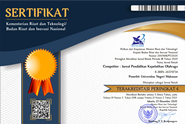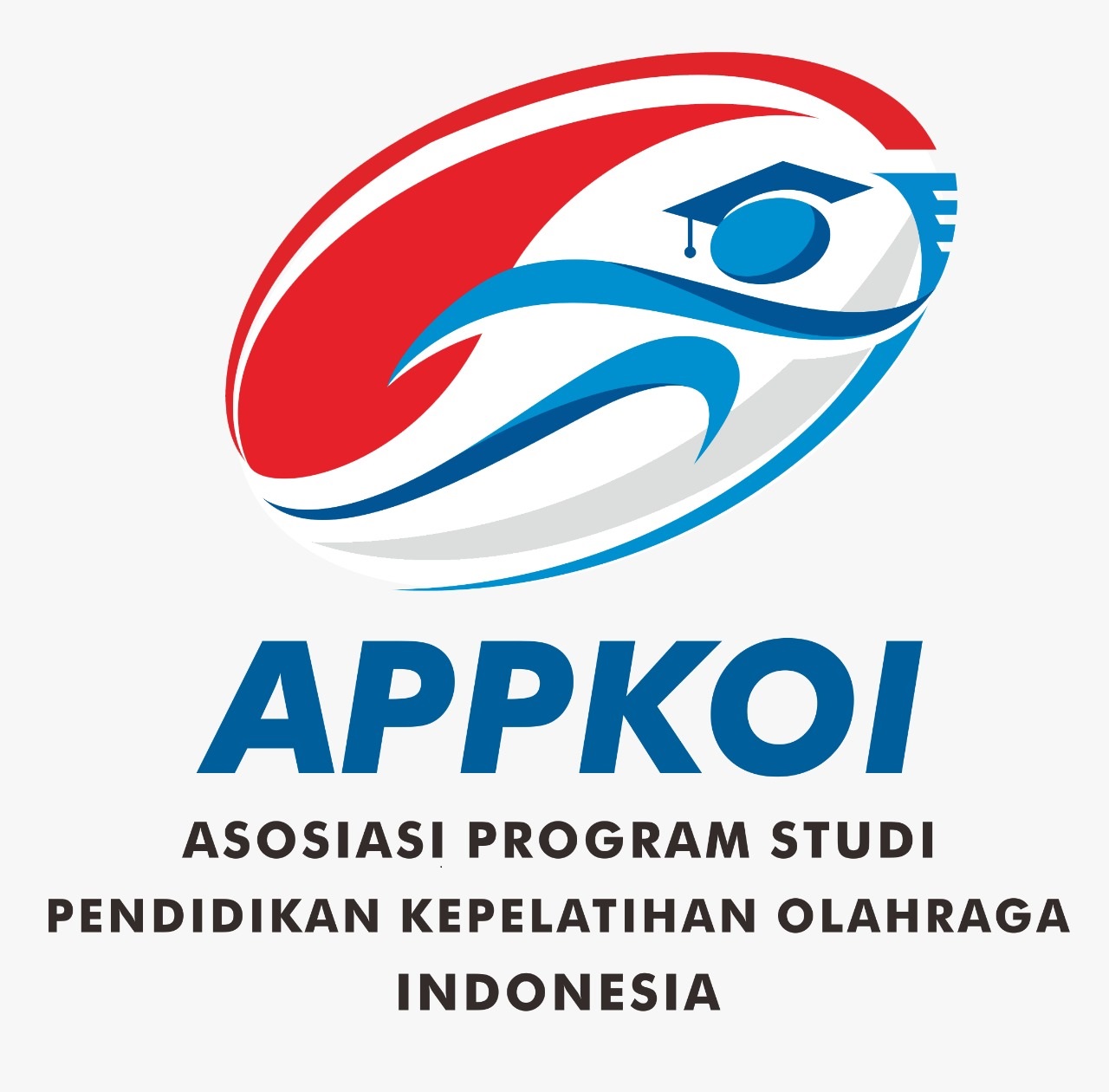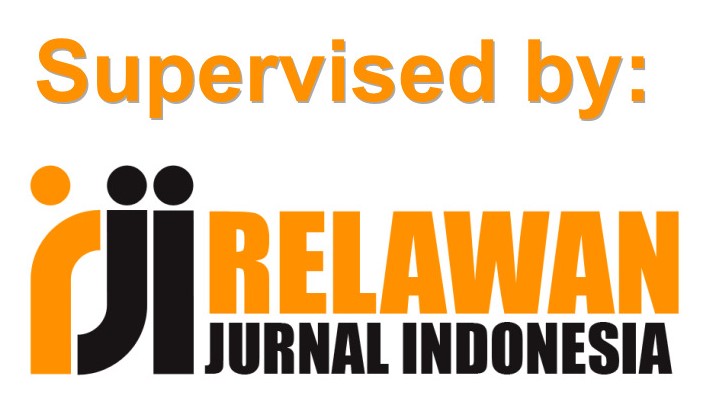Promoting Positive Youth Development Through Outdoor Physical Activity As An Alternative To Growing Life Skills; Narrative Literature Reviewer
(1) Galuh University
(2) Indonesia University of Education
(3) Indonesia University of Education
(4) STKIP Muhammadiyah Kuningan
(*) Corresponding Author
DOI: https://doi.org/10.26858/cjpko.v15i1.42878
Abstract
Outdoors is one of the educational and recreational media that is expected to be able to bring out creativity and stimulate someone to be able to control their emotions about uncertainty over achieving goals in life. The method in this research is descriptive qualitative and narrative literature review. Data collection techniques using library research. Types of data using textual or conceptual. Aspects of analysis include definitions, concepts, views, thoughts and arguments. The source of data in this research is secondary data and refers to life skills or the term '5C' (Competence, Confidence, Character, Connections, Compassion/ Caring) in the development of strength-based youth as contained in the positive youth development program. (Lerner et al., 2005; Lerner et al., 2015) Research result; relation to outdoor physical activity as an alternative to fostering life skills through positive youth development programs that structured and unstructured outdoor recreational experiences can foster self-concept and enhance the development of motor skills and academic achievement as well as bring about competence and increased self-efficacy. In conclusion, outdoor experiences during adolescence can develop life skills that last a lifetime.
Keywords
Full Text:
PDFReferences
Armour, K., & Sandford, R. (2013). Positive youth development through an outdoor physical activity programme: Evidence from a four-year evaluation. Educational Review, 65(1), 85–108. https://doi.org/10.1080/00131911.2011.648169
Birch, J., Rishbeth, C., & Payne, S. R. (2020). Nature doesn’t judge you – how urban nature supports young people’s mental health and wellbeing in a diverse UK city. Health and Place, 62(January), 102296. https://doi.org/10.1016/j.healthplace.2020.102296
Bowen, D. J., & Neill, J. T. (2016). Effects of the PCYC Catalyst outdoor adventure intervention program on youths’ life skills, mental health, and delinquent behaviour. International Journal of Adolescence and Youth, 21(1), 34–55. https://doi.org/10.1080/02673843.2015.1027716
Bowers, E. P., Larson, L. R., & Sandoval, A. M. (2019). Urban youth perspectives on the benefits and challenges of outdoor adventure camp. Journal of Youth Development, 14(4), 122–143. https://doi.org/10.5195/JYD.2019.809
Bowers, E. P., Li, Y., Kiely, M. K., Brittian, A., Lerner, J. V., & Lerner, R. M. (2010). The Five Cs model of positive youth development: A longitudinal analysis of confirmatory factor structure and measurement invariance. Journal of Youth and Adolescence, 39(7), 720–735. https://doi.org/10.1007/s10964-010-9530-9
Bratman, G. N., Anderson, C. B., Berman, M. G., Cochran, B., de Vries, S., Flanders, J., Folke, C., Frumkin, H., Gross, J. J., Hartig, T., Kahn, P. H., Kuo, M., Lawler, J. J., Levin, P. S., Lindahl, T., Meyer-Lindenberg, A., Mitchell, R., Ouyang, Z., Roe, J., … Daily, G. C. (2019). Nature and mental health: An ecosystem service perspective. Science Advances, 5(7). https://doi.org/10.1126/sciadv.aax0903
Brent Jackson, S., Stevenson, K. T., Larson, L. R., Nils Peterson, M., & Seekamp, E. (2021). Outdoor activity participation improves adolescents’ mental health and well-being during the covid-19 pandemic. International Journal of Environmental Research and Public Health, 18(5), 1–19. https://doi.org/10.3390/ijerph18052506
Brown, K. A., Patel, D. R., & Darmawan, D. (2017). Participation in sports in relation to adolescent growth and development. Translational Pediatrics, 6(3), 150–159. https://doi.org/10.21037/tp.2017.04.03
Capaldi A., C. A., Dopko L., R. L., & Zelenski, J. M. (2014). The relationship between nature connectedness and happiness: A meta-analysis. Frontiers in Psychology, 5(AUG), 1–15. https://doi.org/10.3389/fpsyg.2014.00976
Chawla, L. (2015). Benefits of Nature Contact for Children. Journal of Planning Literature, 30(4), 433–452. https://doi.org/10.1177/0885412215595441
Dzhambov, A., Hartig, T., Markevych, I., Tilov, B., & Dimitrova, D. (2018). Urban residential greenspace and mental health in youth: Different approaches to testing multiple pathways yield different conclusions. Environmental Research, 160(June 2017), 47–59. https://doi.org/10.1016/j.envres.2017.09.015
Hattie, J., Marsh, H. W., Neill, J. T., & Richards, G. E. (1997). Adventure education and outward bound: Out-of-class experiences that make a lasting difference. Review of Educational Research, 67(1), 43–87. https://doi.org/10.3102/00346543067001043
Hunter, M. C. R., Gillespie, B. W., & Chen, S. Y. P. (2019). Urban nature experiences reduce stress in the context of daily life based on salivary biomarkers. Frontiers in Psychology, 10(APR), 1–16. https://doi.org/10.3389/fpsyg.2019.00722
Jennings, V., & Bamkole, O. (2019). The relationship between social cohesion and urban green space: An avenue for health promotion. International Journal of Environmental Research and Public Health, 16(3). https://doi.org/10.3390/ijerph16030452
Kabisch, N., Alonso, L., Dadvand, P., & van den Bosch, M. (2019). Urban natural environments and motor development in early life. Environmental Research, 179(June), 108774. https://doi.org/10.1016/j.envres.2019.108774
Kaplan, S. (1995). The restorative benefits of nature: Toward an integrative framework. Journal of Environmental Psychology, 15(3), 169–182. https://doi.org/10.1016/0272-4944(95)90001-2
Kendellen, K., Camiré, M., Bean, C. N., Forneris, T., & Thompson, J. (2017). Integrating life skills into Golf Canada’s youth programs: Insights into a successful research to practice partnership. Journal of Sport Psychology in Action, 8(1), 34–46. https://doi.org/10.1080/21520704.2016.1205699
Lerner, R. M., Almerigi, J. B., Theokas, C., & Lerner, J. V. (2005). Positive youth development: A view of the issues. Journal of Early Adolescence, 25(1), 10–16. https://doi.org/10.1177/0272431604273211
Lerner, R. M., Lerner, J. V., Bowers, E. P., & Geldhof, G. J. (2015). Positive Youth Development and Relational Developmental Systems. Global Perspectives on Catholic Religious Education in Schools, 73–83. https://doi.org/10.1007/978-3-319-20925-8_7
Mainella, F. P., Agate, J. R., & Clark, B. S. (2011). Outdoor-based play and reconnection to nature: A neglected pathway to positive youth development. NEW DIRECTIONS FOR YOUTH DEVELOPMENT, 130, 89–104. https://doi.org/10.1002/yd
Mardiyantoro, N. (2019). Metodologi Penelitian. Elearning FASTIKOM, 1–18.
Mayer, F. S., & Frantz, C. M. P. (2004). The connectedness to nature scale: A measure of individuals’ feeling in community with nature. Journal of Environmental Psychology, 24(4), 503–515. https://doi.org/10.1016/j.jenvp.2004.10.001
McCormick, R. (2017). Does Access to Green Space Impact the Mental Well-being of Children: A Systematic Review. Journal of Pediatric Nursing, 37, 3–7. https://doi.org/10.1016/j.pedn.2017.08.027
Menestrel, S. Le, & Perkins, D. F. (2007). An overview of how sports, out-of- school time, and youth well-being can and do intersect. Waley Online Library, 115, 13–25. https://doi.org/10.1002/yd
Mercier, J., Powell, C., Langdon-Pole, G., Finau, D., Hicks, K., Bourchier, L., & Hampton, J. (2019). The five Cs of positive youth development in an aotearoa/new zealand program context. Journal of Youth Development, 14(4), 36–58. https://doi.org/10.5195/JYD.2019.774
Milteer, R. M., Ginsburg, K. R., Mulligan, D. A., Ameenuddin, N., Brown, A., Christakis, D. A., Cross, C., Falik, H. L., Hill, D. L., Hogan, M. J., Levine, A. E., O’Keeffe, G. S., Swanson, W. S., Siegel, B. S., Dobbins, M. I., Earls, M. F., Garner, A. S., McGuinn, L., Pascoe, J., & Wood, D. L. (2011). The importance of play in promoting healthy child development and maintaining strong parent-child bond: Focus on children in poverty. Pediatrics, 129(1). https://doi.org/10.1542/peds.2011-2953
Patton, G. C., Sawyer, S. M., Santelli, J. S., Ross, D. A., Afifi, R., Allen, N. B., Arora, M., Azzopardi, P., Baldwin, W., Bonell, C., Kakuma, R., Kennedy, E., Mahon, J., McGovern, T., Mokdad, A. H., Patel, V., Petroni, S., Reavley, N., Taiwo, K., … Viner, R. M. (2016). Our future: a Lancet commission on adolescent health and wellbeing. The Lancet, 387(10036), 2423–2478. https://doi.org/10.1016/S0140-6736(16)00579-1
Shek, D. T., Dou, D., Zhu, X., & Chai, W. (2019). Positive youth development : current perspectives. Dovepress, 10, 131–141.
Twohig-Bennett, C., & Jones, A. (2018). The health benefits of the great outdoors: A systematic review and meta-analysis of greenspace exposure and health outcomes. Environmental Research, 166(June), 628–637. https://doi.org/10.1016/j.envres.2018.06.030
van den Bosch, M., & Ode Sang. (2017). Urban natural environments as nature-based solutions for improved public health – A systematic review of reviews. Environmental Research, 158(November 2016), 373–384. https://doi.org/10.1016/j.envres.2017.05.040
Vandell, D. L. (2013). Afterschool Program Quality and Student Outcomes : Reflections on Positive Key Findings on Learning and Development From Recent Research. 10–16.
Weinstein, N., Przybylski, A. K., & Ryan, R. M. (2009). Can nature make us more caring? Effects of immersion in nature on intrinsic aspirations and generosity. Personality and Social Psychology Bulletin, 35(10), 1315–1329. https://doi.org/10.1177/0146167209341649
Zaff, J., Hart, D., Flanagan, C. A., Youniss, J., & Levine, P. (2010). Developing Civic Engagement within a Civic Context. In R. M. Lerner, M. E. Lamb, & A. M. Freund (Eds.), The Handbook of Life-Span Development (pp. 590–630). John Wiley & Sons, Inc. https://doi.org/10.1002/9780470880166.hlsd002015
Article Metrics
Abstract view : 92 times | PDF view : 24 timesRefbacks
- There are currently no refbacks.
Copyright (c) 2023 Komarudin Komarudin Komarudin, Amung Ma'mun, dedi Iskandar

This work is licensed under a Creative Commons Attribution 4.0 International License.
COMPETITOR IS LICENSED BY :
 COMPETITOR is licensed under a Creative Commons Attribution 4.0 International License.
COMPETITOR is licensed under a Creative Commons Attribution 4.0 International License.
COMPETITOR EDITORIAL LOCATION :
![]() Kampus FIK Banta Bantaeng, Jalan Wijaya Kusuma Nomor 14, Rappocini, Makassar, Postal Code 90222
Kampus FIK Banta Bantaeng, Jalan Wijaya Kusuma Nomor 14, Rappocini, Makassar, Postal Code 90222
COMPETITOR IS INDEXED BY















